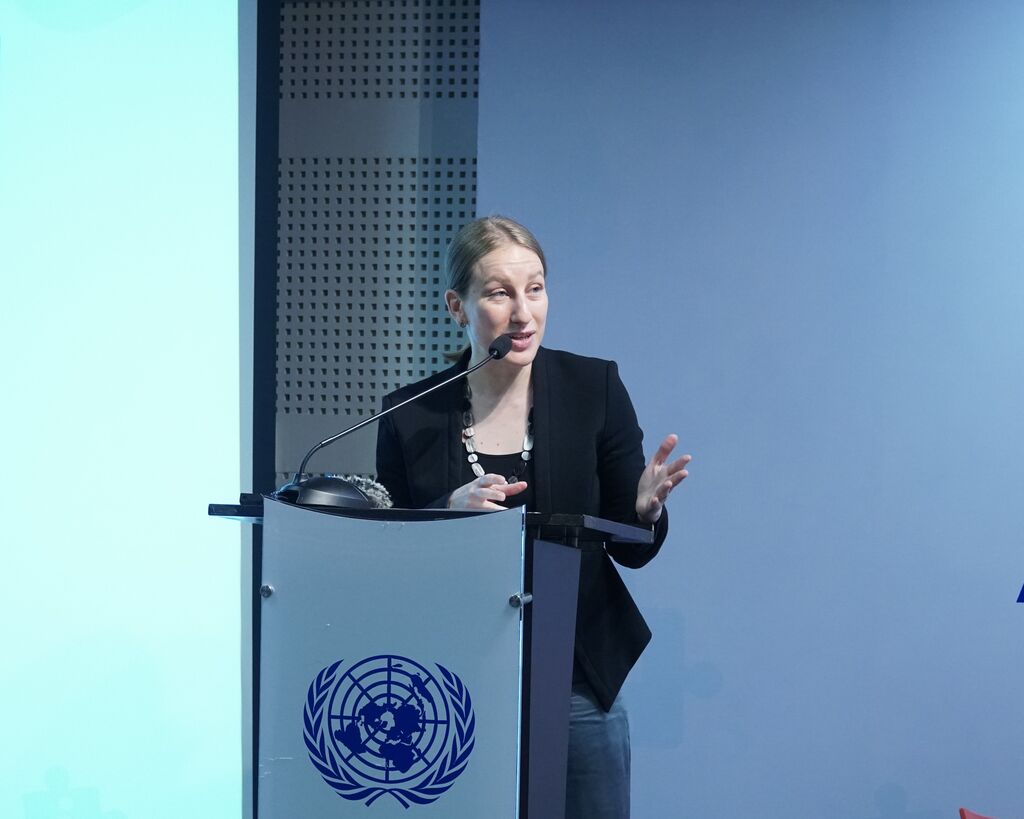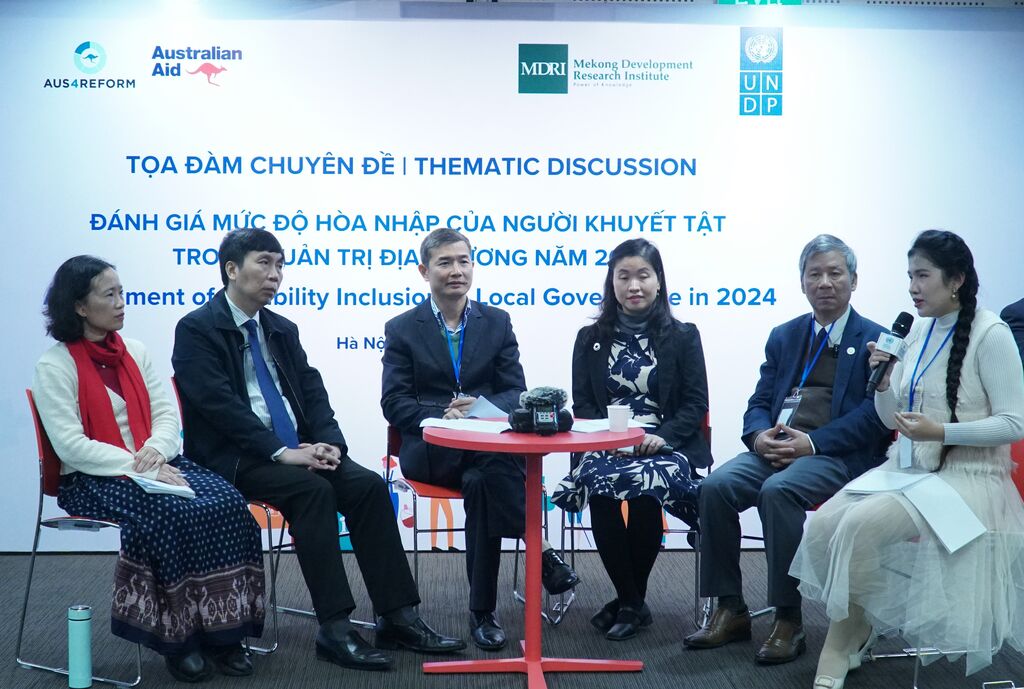 |
| Madeleine Plocki, Second Secretary Development, Australian Embassy in Vietnam speaks at the thematic discussion__Photo: UNDP |
Persons with disabilities in Vietnam encounter various obstacles in accessing public services, receiving allowances, using banking services, and adapting to climate change. Hence it is necessary to take various measures to ensure inclusion and development of persons with disabilities in a digital society and climate change challenges, experts said at a thematic discussion held on December 12 in Hanoi.
The thematic discussion “Assessment of Disability Inclusion in Local Governance in 2024” is jointly organized by the Mekong Development Research Institute (MDRI) and the United Nations Development Program (UNDP) in Vietnam, with support from the Australian Department of Foreign Affairs and Trade (DFAT) through the Vietnam Provincial Governance and Public Administration Performance Index (PAPI) program.
In his opening remark, Phung Duc Tung, Director of the Mekong Development Research Institute (MDRI), said “This study aims to provide an opportunity for persons with disabilities to share their perspectives, supplement the annual PAPI Index, and offer disability-inclusive policy recommendations”.
The study found that in the past 12 months, up to 25.6 percent found it difficult to search for information on online public service portals, 52.4 percent faced challenges in receiving allowances due to reliance on family members to collect them. Furthermore, only 24.3 percent of monthly allowance recipients receive allowances via bank accounts because banking services are also not easily accessible to most of persons with disabilities.
 |
| Delegates at the thematic discussion__Photo: UNDP |
Despite being identified as a vulnerable group requiring special priority, persons with disabilities face significant support gaps due to the lack of specific policies for different types of disabilities and limited financial and human resources in the disaster situations at the local level.
“People with disabilities are the largest and most disadvantaged minority in the world, representing 15 percent of the global population. Effectively addressing the needs of those who experience greatest vulnerability, including people with disabilities, provides the bedrock for social cohesion and contributes to resilient and prosperous countries. Australia is deeply committed to advancing the rights people with disabilities domestically, globally and in Vietnam”, Madeleine Plocki, Second Secretary Development, Australian Embassy in Vietnam shared.
During the discussion, experts recommend that it is crucial to enhance online public service portals, take into account the capabilities and preferences of persons with disabilities when implementing methods of receiving allowances at the local level, and implement tailored measures for climate adaptation based on specific disability types.
There is also a need to strengthen advocacy efforts to raise awareness about elections and promote the participation of persons with disabilities in the electoral process, ensuring the protection of civil rights and advancing social equality and inclusion.- (VLLF)









